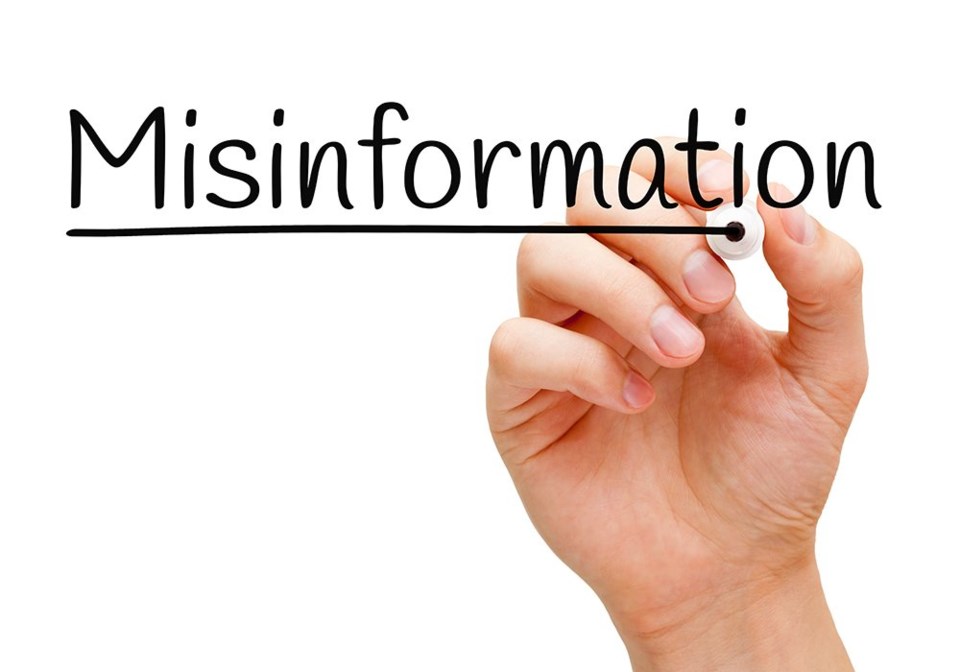WESTERN PRODUCER — The word “misinformation” is problematic for many reasons.
Its irresponsible use can remove nuanced thinking from public and political discourse and divide people into groups.
Misinformation is defined as false information that is spread regardless of whether there is intent to mislead. But “false” often relies on anecdotal evidence or opinion, not scientific rigour, and relies on the assumption that there is only one belief system across society.
Thus the power that this word holds is a threat to democracy.
“Misinformation” is also counterintuitive to the expansive information networks that have existed through most of human history; networks that have resulted in significant innovation and novel inventions.
Unfortunately, the word is often used against people to avoid scientific or political debate in person and online. And in many ways, it’s an excuse or even justification for the unconscious bias we all have.
Misinformation is an arbitrary word that describes anything that doesn’t align with one’s own belief system.
Somehow we’ve reached a point where we’ve told ourselves this is OK. We’ve convinced ourselves, or been convinced by others, that differences in opinion are a bad thing and should be done away with.
Now more than ever, the Socratic approach to dialogue is needed. It is a method of asking questions to stimulate critical thinking. Its absence leads to group think and even worse, mob mentality.
I’m not sure if you’ve noticed this, but online dialogue and debates are being censored and regulated at a time when there are ample world problems to solve. While science is often portrayed as the answer, somehow it seems we’ve gotten its application wrong.
Science is the process of exploration; the act of questioning and challenging assumptions with intent to disprove. What is happening now, in person and online, ignores the process of scientific discovery.
While science could, and I would argue should, be the antidote to misinformation, its application is often misunderstood.
People who use the word “misinformation” generally consider their ideas to be truthful and factual. Their motivations are pure. But given that human nature is to avoid threat, the threat of our own ideas being questioned is lessened when we either dismiss or avoid different perspectives.
This point is supported by . The results confirmed that people tend to seek news outlets that align with their personal views.
This is also observed in the agriculture industry, where the common narrative toward environmental non-government organizations and other groups — which may not share common views about farming — often lead us to label them as anti-agriculture or misinformed.
The online space is littered with this type of behaviour as well, and it appears big tech companies are perpetuating it by developing data-driven algorithms to filter out misinformation.
In other words, they feed our innate desire for safety.
For example, Microsoft uses artificial intelligence to build a “trustworthy” algorithm to control misinformation. Facebook is working with third-party fact checkers to identify misinformation, and WhatsApp announced it will limit text forwards to five recipients as a way to slow the spread of misinformation.
Alas, it appears people no longer regulate misinformation.
If our ability to think freely is to be maintained, access to ideas must be publicly available, peer reviewed, and replicable. Information should no longer be regulated by authorities. It should be in the hands of people.
I can’t help but wonder if, in the next 10 years, institutionalized access over information will prevail. And I can’t help but wonder what further ramifications will come from allowing big tech and corporations to algorithmically disseminate information while profiting from it.
Perhaps the silver lining lies in the increased appetite and accessibility of independent journalism and podcasting.
As humans, it’s important to question everything, especially that which we desire to believe the most.
The next time you use the word “misinformation,” ask yourself why. There’s a chance it might be the easiest way to escape an uncomfortable but necessary conversation.
Katelyn Duncan PAg is a Regina area agrologist, farm consutant and policy analyst. She can be reached at koducan90@gmail.com.




